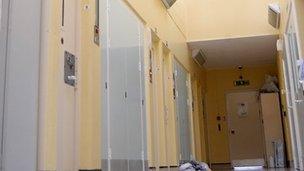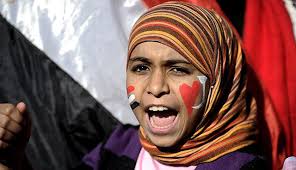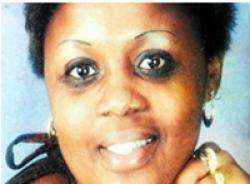
Tanya McDowell addresses reporters
Forty some years ago Paulo Freire argued against what he called the banking model of teaching and learning. That was then. Today, the bank is gone, and a prison stands in its place.
Ask Tanya McDowell or Mireya Gaytan.
Tanya McDowell is a Black woman, a single mother, living with her 6-year-old son. She lives, officially, in Bridgeport. `Officially’ because in fact McDowell is homeless. Or she was last April when she was arrested, in Norwalk, for stealing education. Stealing education is a first-degree larceny offense.
McDowell registered her son in Norwalk, using the address of her babysitter. When this was `discovered’, McDowell was charged with theft. Two weeks ago, she pled out, and was sentenced to five years in jail and five years probation. That’s almost a year for each year of her son’s life.
The public story is `complicated’ by McDowell’s arrests and convictions for selling drugs. Thus, the trial in Norwalk, despite her attorney’s protest, was for both the sale of narcotics and the first-degree larceny, because, somehow, these have to be taken together. That way, it can be demonstrated that Tanya McDowell is not a woman trying to get a decent education for her child. No. She’s a bad mother. She must be. She sells drugs. And she’s not only a bad mother and a drug dealer. She’s Black, homeless, unemployed, underemployed.
The story hearkens to that of Kelley Williams-Bolar, the Black woman in Ohio who was found guilty of stealing education. The story is complicated by the ongoing narratives of the national and regional campaigns to criminalize Black women, and women of color, more generally.
And to criminalize their daughters as well.
Yajira Quezada is eleven years old. She lives, and goes to school, in Colorado. Earlier this week, she got into some trouble with the administration in her schooling, mouthing off or not showing proper respect or deference. So … they called in a counselor. That didn’t work. So … they called in “the school resource officer.” He handcuffed the eleven-year-old girl, took her into his squad car, and delivered her to the juvenile holding facility. As explained by the local sheriff, this is standard operating procedure for `transport’ of juveniles.
This public story is `complicated’ as well. Children across the United States are subjected to such treatment regularly. School `resource officers’ routinely handcuff children; routinely take them off to juvenile `facilities.’ Children across the country are routinely dumped into `seclusion rooms’. Solitary confinement. In Georgia, in Wisconsin, children have met their deaths in school-based solitary confinement.
Yajira’s mother, Mireya Gaytan, is outraged. She doesn’t want her daughter to be allowed to misbehave or show disrespect … to anyone. But she also doesn’t want her daughter to be treated as a criminal. In short, she wants her daughter to receive an education.
Tanya McDowell, Mireya Gaytan, two women in America who want their children to receive an education. Not a prison sentence. Not a death sentence. Not a criminal record. Not a trace memory on the wrists. Not a sense of overwhelming vulnerability. Not an indictment based on the color of skin, not a conviction based on where you live … or don’t.
An education.
Education is not merchandise. Those who seek education are not `clients’ or `customers’. They are human beings who know that education is always shared, always social. They are women and girls, and especially women and girls of color, who know that education cannot be stolen, handcuffed, or imprisoned. Education is a human right, a civil right, a women’s right. Period.
(Photo Credit: Kathleen O’Rourke / Stamford Advocate)









